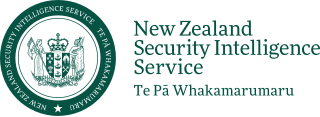
The Gramm–Leach–Bliley Act (GLBA), also known as the Financial Services Modernization Act of 1999, is an act of the 106th United States Congress (1999–2001). It repealed part of the Glass–Steagall Act of 1933, removing barriers in the market among banking companies, securities companies, and insurance companies that prohibited any one institution from acting as any combination of an investment bank, a commercial bank, and an insurance company. With the passage of the Gramm–Leach–Bliley Act, commercial banks, investment banks, securities firms, and insurance companies were allowed to consolidate. Furthermore, it failed to give to the SEC or any other financial regulatory agency the authority to regulate large investment bank holding companies. The legislation was signed into law by President Bill Clinton.

Identity theft or identity infringement occurs when someone uses another person's personal identifying information, like their name, identifying number, or credit card number, without their permission, to commit fraud or other crimes. The term identity theft was coined in 1964. Since that time, the definition of identity theft has been statutorily defined throughout both the U.K. and the U.S. as the theft of personally identifiable information. Identity theft deliberately uses someone else's identity as a method to gain financial advantages or obtain credit and other benefits, and perhaps to cause other person's disadvantages or loss. The person whose identity has been stolen may suffer adverse consequences, especially if they are falsely held responsible for the perpetrator's actions. Personally identifiable information generally includes a person's name, date of birth, social security number, driver's license number, bank account or credit card numbers, PINs, electronic signatures, fingerprints, passwords, or any other information that can be used to access a person's financial resources.

Spark New Zealand Limited is a New Zealand telecommunications and digital services company providing fixed-line telephone services, mobile phone services, broadband, and digital technology services including cloud, security, digital transformation and managed services. Its customers range from consumers to small - medium business, government agencies and large enterprise clients. It was formerly known as Telecom New Zealand until it was rebranded to Spark in 2014. It has operated as a publicly traded company since 1990. Spark's mobile network reaches 98% of New Zealand, with over 2.5 million mobile connections and 704,000 broadband connections

Rabobank is a Dutch multinational banking and financial services company headquartered in Utrecht, Netherlands. The group comprises 89 local Dutch Rabobanks (2019), a central organisation, and many specialised international offices and subsidiaries. Food and agribusiness constitute the primary international focus of the Rabobank Group. Rabobank is the second-largest bank in the Netherlands in terms of total assets.

The New Zealand Security Intelligence Service is New Zealand's primary national intelligence agency. It is responsible for providing information and advising on matters including national security and foreign intelligence. It is headquartered in Wellington and overseen by a Director-General, the Minister of New Zealand Security Intelligence Service, and the parliamentary intelligence and security committee; independent oversight is provided by the Inspector-General of Intelligence and Security.

The Fair Credit Reporting Act (FCRA), 15 U.S.C. § 1681 et seq., is federal legislation enacted to promote the accuracy, fairness, and privacy of consumer information contained in the files of consumer reporting agencies. It was intended to shield consumers from the willful and/or negligent inclusion of erroneous data in their credit reports. To that end, the FCRA regulates the collection, dissemination, and use of consumer information, including consumer credit information. Together with the Fair Debt Collection Practices Act (FDCPA), the FCRA forms the foundation of consumer rights law in the United States. It was originally passed in 1970, and is enforced by the U.S. Federal Trade Commission, the Consumer Financial Protection Bureau, and private litigants.

Equifax Inc. is an American multinational consumer credit reporting agency headquartered in Atlanta, Georgia and is one of the three largest consumer credit reporting agencies, along with Experian and TransUnion. Equifax collects and aggregates information on over 800 million individual consumers and more than 88 million businesses worldwide. In addition to credit and demographic data and services to business, Equifax sells credit monitoring and fraud prevention services directly to consumers.
A credit history is a record of a borrower's responsible repayment of debts. A credit report is a record of the borrower's credit history from a number of sources, including banks, credit card companies, collection agencies, and governments. A borrower's credit score is the result of a mathematical algorithm applied to a credit report and other sources of information to predict future delinquency.
Veda Advantage was the largest credit reference agency in Australia and New Zealand, before it was acquired by Equifax in February 2016. It provided credit reporting, credit scoring, and marketing analytics services.

The Accident Compensation Corporation (ACC) is the New Zealand Crown entity responsible for administering the country's no-fault accidental injury compensation scheme, commonly referred to as the ACC scheme. The scheme provides financial compensation and support to citizens, residents, and temporary visitors who have suffered personal injuries.
The Vedas are part of a set of Hindu texts.
A credit score is a numerical expression based on a level analysis of a person's credit files, to represent the creditworthiness of an individual. A credit score is primarily based on a credit report, information typically sourced from credit bureaus.

Auckland City Council was the local government authority for Auckland City, New Zealand, from 1871 to 1 November 2010, when it and Auckland's six other city and district councils were amalgamated to form the Auckland Council. It was an elected body representing the 404,658 residents of the city, which included some of the Hauraki Gulf islands, such as Waiheke Island and Great Barrier Island. It was chaired by the Mayor of Auckland City.

Westpac Banking Corporation, known simply as Westpac, is an Australian multinational banking and financial services company headquartered at Westpac Place in Sydney, New South Wales.
Dow Design is a New Zealand brand design company based in Auckland.
New Zealand is committed to the Universal Declaration of Human Rights and has ratified the International Covenant on Civil and Political Rights, both of which contain a right to privacy. Privacy law in New Zealand is dealt with by statute and the common law. The Privacy Act 2020 addresses the collection, storage and handling of information. A general right to privacy has otherwise been created in the tort of privacy. Such a right was recognised in Hosking v Runting [2003] 3 NZLR 385, a case that dealt with publication of private facts. In the subsequent case C v Holland [2012] NZHC 2155 the Court recognised a right to privacy in the sense of seclusion or a right to be free from unwanted intrusion. For a useful summary see: court-recognises-intrusion-on-seclusion-privacy-tort-hugh-tomlinson-qc/
Heartland Bank is a New Zealand owned bank that was created in 2011 through the merging of four financial organisations. Heartland was granted its bank registration by the Reserve Bank of New Zealand in 2012. It specialises in motor vehicle loans, reverse mortgages, small business finance, livestock finance, savings, investments and deposits.
The Credit Reporting Privacy Code (CRPC) was issued by the Privacy Commissioner Marie Shroff on 6 December 2004. It is one of several Codes of Practice issued by the Privacy Commissioner under section 46 of the Privacy Act.
The Office of the Privacy Commissioner administers the Privacy Act 2020. The Privacy Commissioner is entrusted to protect personal information of New Zealanders in accordance with the Privacy Act. Current Privacy Commissioner, Michael Webster, began his role in July 2022.

The Real Estate Authority (REA), formerly the Real Estate Agents Authority (REAA), is the New Zealand Crown entity responsible for the regulation of the New Zealand real estate industry as well as the agents within it.









